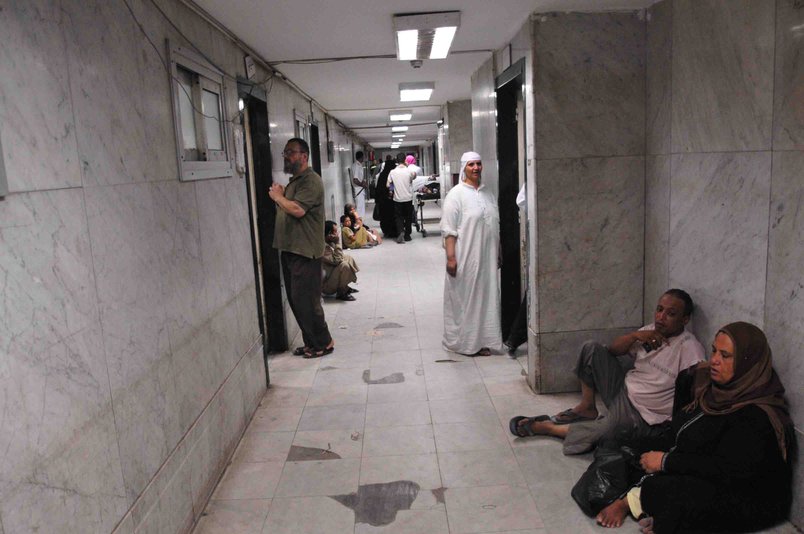
(Photo from FJP)
Human Rights Watch (HRW) demanded that the Egyptian authorities investigate claims police tortured the former finance minister’s advisor and his brother in detention, in a report issued Tuesday.
Cairo University Economics Professor Abdalla Shehata who worked with the Egyptian finance ministry through official positions and advisory roles from 2007 until the Muslim Brotherhood government’s ouster in July 2013.
Shehata also led the economic committee of the Brotherhood’s Freedom and Justice Party (FJP), until the army took power.
“Government silence over reports that police electrocuted a university professor shows how far off course Egypt has drifted since the Arab Spring,” said Nadim Houry, HRW’s deputy Middle East and North Africa director.
Shehata was arrested along with his brother Asaad on 28 November 2014, during a security crackdown against a large campaign calling for protests, entitled the “Muslim Youth Revolution”.
The Ministry of Interior issued a video statement on 18 December that included a confession by Shehata that he supplied Brotherhood operatives with weapons and ammunition. He also allegedly confessed to making homemade explosive devices along with his brother, with the intention of using them in the Brotherhood’s protests.
A lawyer told HRW in December that interrogators subjected Shehata, who once led Egypt’s negotiations with the International Monetary Fund, and his brother to electrocution and other mistreatments. These were to force Shehata to confess to weapons possession and other charges related to violence.
Shehata’s other brother Mohamed also said in December that his brother, who worked for international and governmental agencies, could not possibly manufacture those devices, according to a phone call to Qatari Al Jazeera channel.
Mohamed added that his brother was subject to torture by electrocution in the National Security office in Sheikh Zayed, southwest of Cairo, and the charges against him are fabricated.
Shehata’s relatives and his lawyer Ezzat Ghoniem said National Security officers abused and electrocuted Shehata and his brother over four days in the Sheikh Zayed office. They were then sent to prosecutors in the Supreme State Security division of the Prosecutor General, HRW reported.
The prosecutor ordered their detention pending investigations into charges that included belonging to a terrorist group – the Muslim Brotherhood – and possessing weapons.
Ghoniem said: “They wanted to videotape him saying dictated confessions…every time he refused, they electrocuted him again. They also tortured his brother Asaad in front of him to abuse him psychologically,” according to the report.
HRW said that many similar incidents of abuse in custody have been reported in the past two years. The group mentioned a recent report by the United Group, an Egyptian human rights organisation, in which 465 alleged victims of police torture and ill treatment are interviewed.
The victims had filed 163 complaints to prosecutors, of which only seven reached the courts. Of the other cases, 69 remain under investigation and 87 were rejected by prosecutors, according to the United Group report.


